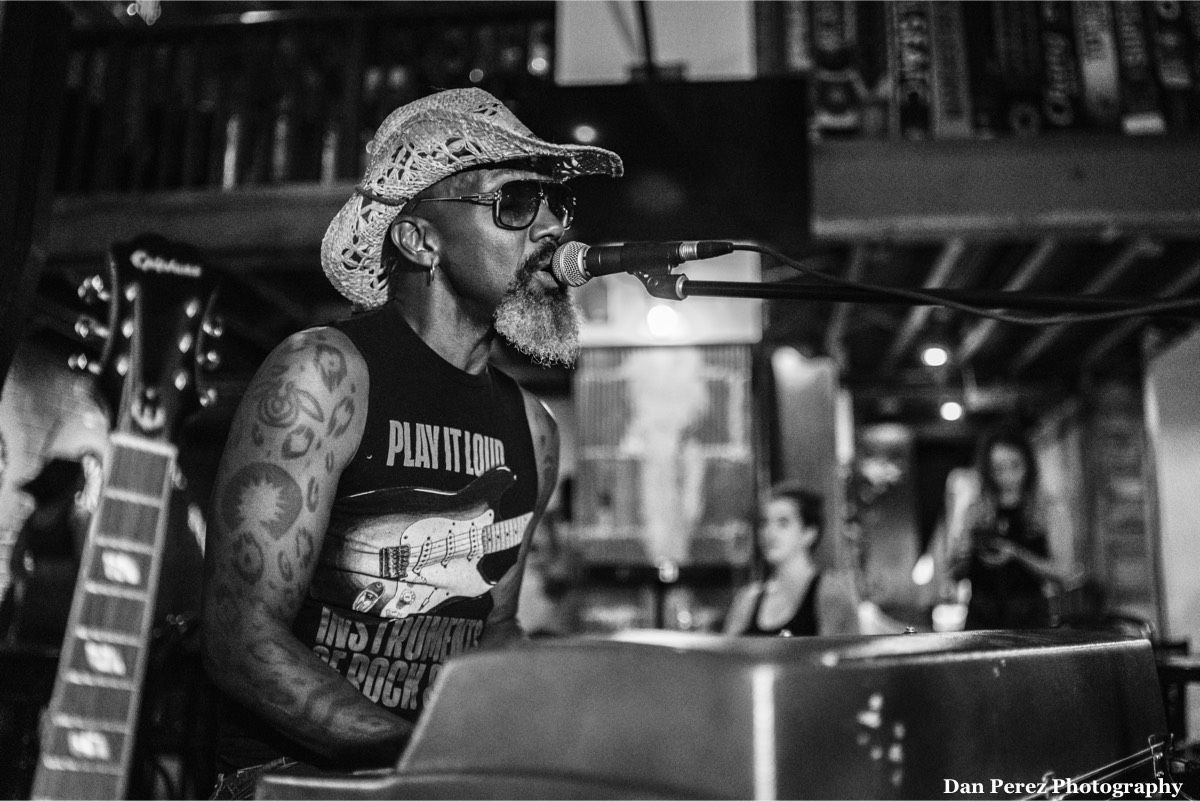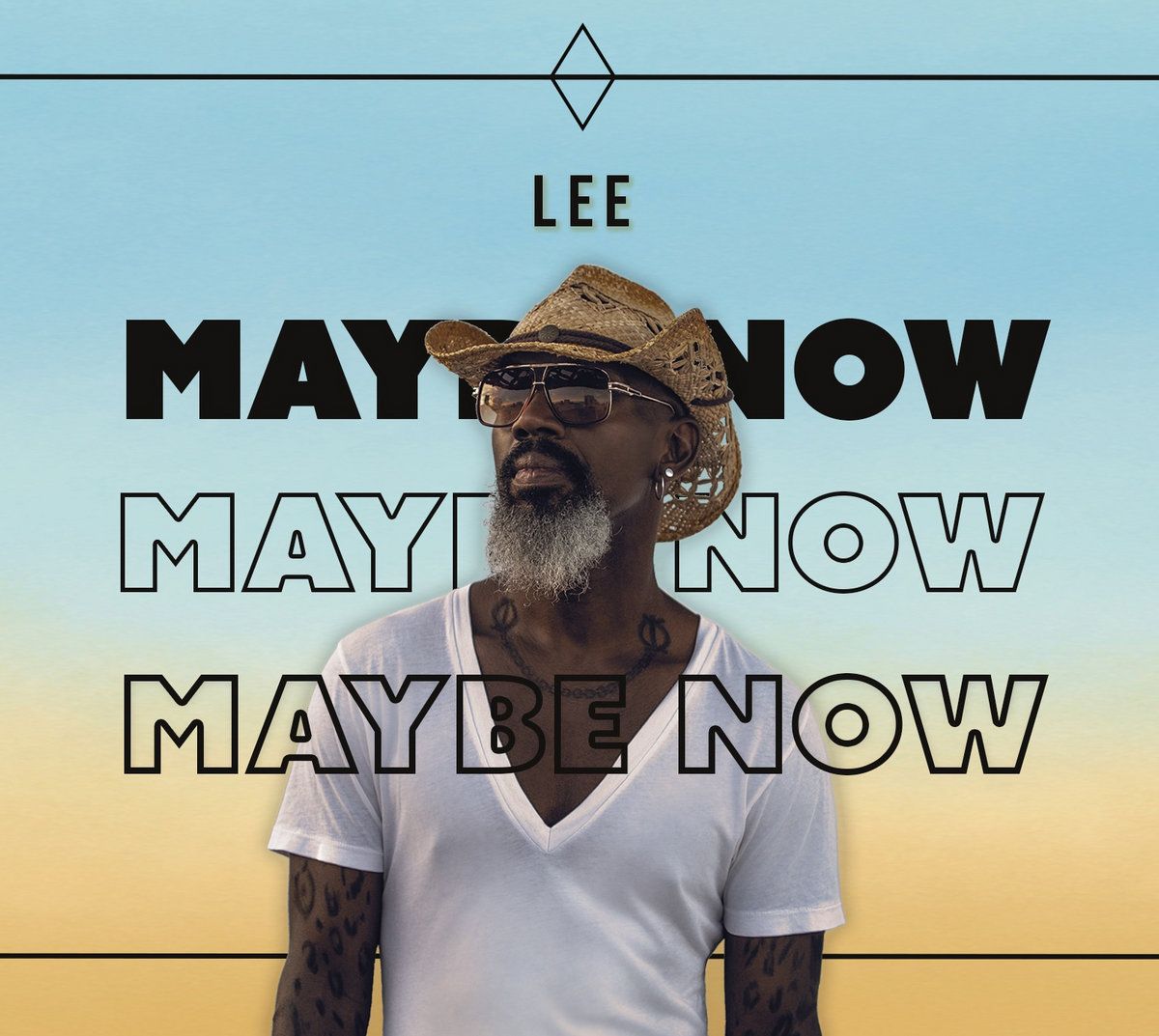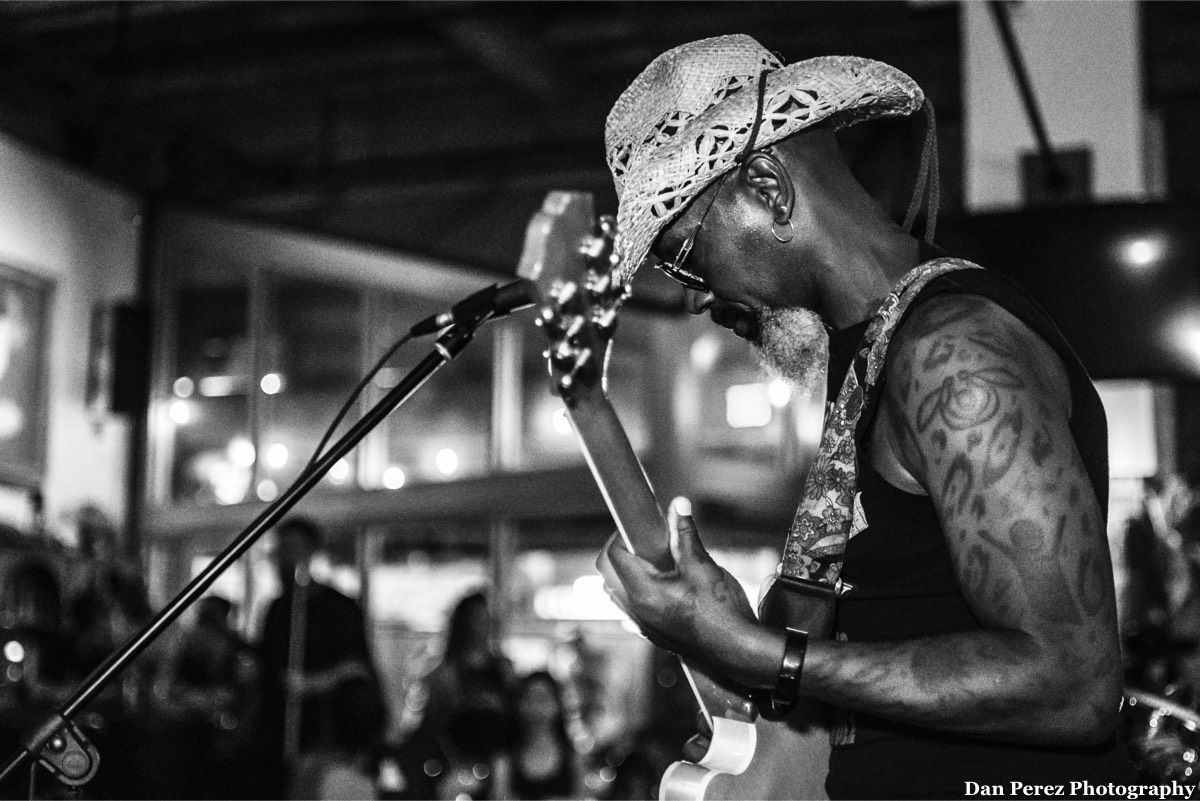Lee Returns From A Five Year Hiatus With The Hopeful ‘Maybe Now’

When Miami-based soul artist Lee wakes up in the morning, he grabs a bucket, and a trash picker, and walks around the block a few times, cleaning up litter that others have left behind. This isn’t his job. It isn’t something he’s paid to do. It’s something he does because he cares about his community.
“One day one of my neighbors looked over their balcony, he’s like, ‘Man, that’s really awesome that you do that,’” Lee recalls, “I told him my philosophy is it starts with the person.”
It’s a classic case of leading by example. “Everybody in the community goes – you know what, if we take the cue, we start taking care of our own.”
Lee’s community is a true melting pot. In his building alone – which only has around two dozen units – he has neighbors from as far off as Spain, and Romania. “They’re from all over the world,” he says, “and we’re living with each other in harmony, and that’s life. It’s not all the other bullshit.”
This is one of the overarching themes of Lee’s upcoming album, Maybe Now, which is due out later this month (listeners can hear, and pre-order the album at whoislee.com).
With Maybe Now being Lee’s first new project in five years, I caught up with him to find out more about the album, as well as how the years he spent in Buenos Aires continue to impact his music, and how disconnecting from social media led him to connect with so much more.
Let’s talk about the album’s title, Maybe Now. This could be taken in a myriad of ways – Maybe Now people will get my message. Maybe Now people will listen to this. So break it down for everyone – Maybe Now what?
It’s kind of both of those things.
Initially it started with the idea of the title song … I’m often cautious of explaining songs, I like people to take away what they want from it, but for me the original idea behind the title of the song, and the album, was the social, and cultural upheaval that transpired in 2020. It just felt like after we went scorched earth, maybe now, as literal as it is, maybe now we could kinda see things for what they are.
When I say “fires” in the song I’m talking about the riots, and the looting. When that’s all gone, maybe people will have a minute to step back and really assess.
You and I have talked about this in passing, but I just felt like the whole summer of 2020 was such bullshit. I felt like the idea of turning people against each other on the basis of just identity politics, and weaponizing that to get people to … at the time I spent a lot of time on Instagram, screaming, for lack of a better term, at friends of mine, like do you really believe this shit? Do you really believe that (using you as an example) Adam Bernard is inherently systemically evil, and oppressing me just because he’s white, just because his skin is lighter than mine? I’m like bro, that’s not your everyday relationship. You work with people, you have neighbors, you have friends.
I can’t speak to the specifics of the things that set this off. I have my opinions about George Floyd. That being what it is, it’s tragic that anyone died, but to suggest that was the reality of all of us in the country I thought was total bullshit, and it was disconnected.
So once we did burn the country down, and that’s exactly what happened, I felt like alright, maybe now you guys can take a step back, maybe now that you got that out of your system maybe you’ll reevaluate the relationships that you have with each other, in society, and culture. That’s where it’s coming from in that perspective.
On the artistic perspective, there were some conversations with me, and some of the people that I work with, and they were like maybe now people will get what you’re doing.
You mentioned both of those, the latter being more of a tongue in cheek thing, but yeah, that was kind of where the statement was.

There are a couple topics on this album that I’d love to dig into, specifically the songs “Girls,” and “Rich Man’s War, Poor Man’s Fight.” “Girls” opens with a scene of you in bed with a woman who asks you if you’re gay. Was this taken from real life?
When I was younger, and I was in South Beach, that was the thing.
A friend who lives in North Carolina, she’s a mother of two now, she made a joke about her days in South Beach. She was a lesbian at the time, she’s like, “South Beach made everybody bi!”
I guess maybe my style at the time confused people, so when they met me they would just ask me shit like that.
It’s a Miami Beach thing. It’s a South Beach thing, for sure, at least back in the day.
“Rich Man’s War, Poor Man’s Fight” is a political song that takes no side other than the side of peace. Would it be safe to say this is one of your biggest ideologies in life?
Yeah, man. It’s just this idea of through whatever militarization that’s going on in the world, we’re still humans. It’s about, for me, that song in particular, and the title track, is when the shit hits the fan, we’re still all just people, and everybody’s trying to live. Politics is how we determine, tribally, what economic approach is going to be best, whether it’s the liberal, conservative, or libertarian, or whatever, but it really does come down to – we’re just fuckin’ people trying to be free.
There’s this big debate right now that’s happening with the student loan forgiveness, but one thing I know, which I guess gets to the theme of “Rich Man, Poor Man,” is governments don’t make money. They print it, but when they’re giving out (money to cover) student loans, that comes from taxes, those taxes are from other people’s labor, so it’s not like there’s free money from the government. The government isn’t giving you money, because it doesn’t earn money, it’s giving you someone else’s money, and that’s what taxation is.
(My significant other) Amit and I were joking about the “eat the rich” thing. She’s like who wouldn’t want to be able to make enough money to take care of themselves, and their immediate friends of family, and go on vacations, and live a life of leisure, but you’re begrudging someone else who has managed to do that for themselves? Of course, we can get into the nuance of, well that person did that because their corporation was subsidized by the government. We can get into that, but at its core are you really mad that someone was able to afford something, and you think they don’t deserve it, or do you want the government to step in so that you can have it?
I got a little bit more political (than I planned to), but that’s effectively my argument – we’re just people, man. Everybody wants to be able to have a roof over their head, everybody wants to be able to feed themselves. To that end, the way to achieve that is through your own earning, and I don’t necessarily need the state to get involved in telling me how I should spend my money, and allocate it.

The musicianship involved with your albums has always been top notch, but it feels like with this album it’s really on another level. How much work went into getting the vibe right for Maybe Now?
Surprisingly, not a lot. Most of the folks on there I’ve worked with, or known in some capacity – Carol (Brevard) is singing on there, and I’ve known Carol since The Square Egg. Mike (Rens) appears on one song just by default because that was something that we started when I was in Brooklyn. Tommy Harron, the bassist from Pencilgrass, I’ve known him since before they moved to New York. A lot of the cats in Argentina that are on there, I knew them from my time living there, so it was just a vibe.
You mentioned living in Argentina. How much of your travels do you hear in the music of Maybe Now?
I think a lot, and that’s probably a function of (the fact that) I still work with a lot of the guys over there.
It’s all music, but culturally what people do makes its way in. They’re classically trained guys over there, they have their own music scene, and they come from that, and there’s obviously Latin American influences, as well, but yeah, I think a lot of the project can be informed by that.
I tell people, I feel like, for me, 2+2=5, and Maybe Now are products of having been in Argentina, and for me, at the time, it was a period of growth as an artist. I became more … my ear got trained a little better.
I was talking with Tommy, the bass player, when I was in New York, and he commented, he’s like, “Man, I’ve seen the maturation of your music, and I can see how much you’ve grown.”
When I was in Argentina what was so cool was it reminded me of when I first moved to New York, or even when I was traveling to New York, and I’d get booked there. What struck me so much about (NYC) at the time was any time of the day I could be anywhere in the city, and I would see somebody carrying an instrument. Someone would be on their way to a gig, or a rehearsal, or maybe The New School, or something. You were on the train, you saw somebody with a case, you were on the bus, or walking down the street, you saw somebody with a case.
That started to change in New York over the years, but when I went to Argentina it was the same vibe. Every block, or so, there was a venue. It could’ve been something as small as the small room of Rockwood (Music Hall), but there was going to be someone playing there.
All the guys I played with while I was there, and recorded with, they either played music all day, or they taught. There was no in-between. You didn’t have the distraction of other stuff, so everyone was immersed in art all the time. You soak that up. You have the freedom to call your keyboard player at like 11am, and say, “Hey bro I got this idea. Come through,” and he’s there at 11:45am just jammin’.
That just upped my vibe, and my musicianship, to be able to bounce ideas off of people, and ask them different things about melody, and chords. That helped inform where I’m at now.
I was in Argentina when I got rid of Facebook. I won’t get into the specifics, but (Facebook) was just such a bad vibe. I found that people that I knew, that were friends with me … everything’s a performance.
I actually had to call somebody that I knew in real life, and like check them. I remember I was on the ferry from Uruguay, we were having some conversation about the big Pharrell lawsuit, which I still, to this day, think the Marvin Gaye estate is trash for that. I was having this conversation with a friend of mine, that I’ve worked with, I know their family, we’ve been in each other’s homes, and it was really a nonsensical conversation. They were saying things that I knew were contra to their beliefs, because it goes back to what I said earlier – I know how you live in real life. In the real world I know that you’re not this person, you’re performing right now, and that’s not cool. So I called them on the ferry from Uruguay, and my opening words were, “You know who this is, right?” Not like some gangster shit, but like you know me, you know who I am, we’re people.
A lot of different friends were calling like, “What’s going on with you two,” and I was like, I couldn’t tell you, but I’m out.
I realized I just didn’t want any part of that. Social media just makes people behave in ways that aren’t real, and I felt like that contributes, a lot, to the political climate where we forget each other’s humanity.
We can have conversations, we can disagree about things, but we can have an offline, private, personal conversation. I’ve learned that people deal with each other face to face very differently than they do on social media, and I didn’t want any part of (the latter).
I shut all that shit out, (and) yeah, it did make time to focus on the things that made me happy. That was a large part, too, of being in Argentina – lowering my overhead, and focusing on quality of life. It reminded me of when I first started The Square Egg in the late ‘90s/early 2000s, when we were playing seven nights a week here in South Florida.
Our days consisted of band members teaching lessons, rehearsing two or three times a week, and playing at night. Those were our days.
That’s what Argentina was for me. I’d wake up, go get a massage, go buy some (vegan) sushi, go home, write some songs, make some mistakes, revisit it, tweak it later, bounce the ideas off of someone else.
The ability to try at something, and tweak it until you get it right, is really awesome from a creative perspective. To be able to immerse yourself in that, and approach it from that perspective, helps you hone your craft.

Comments